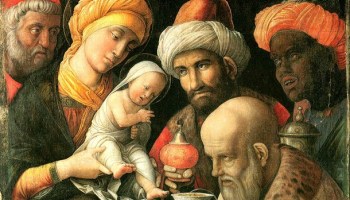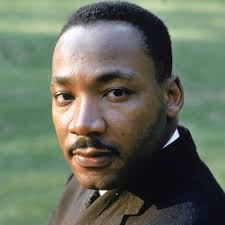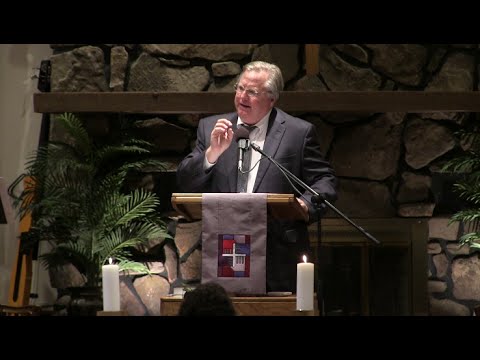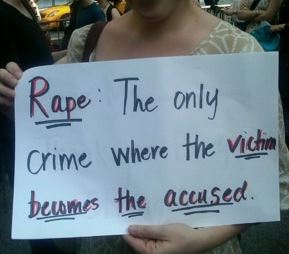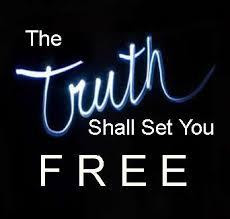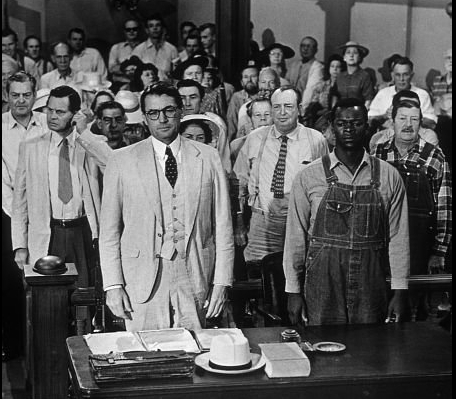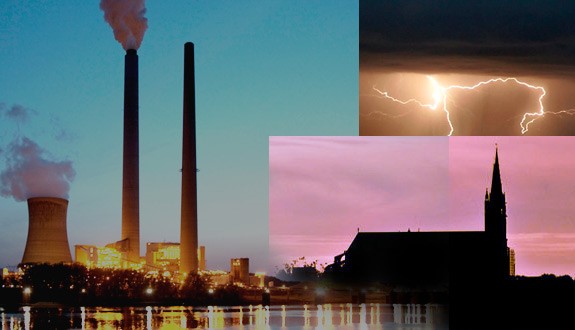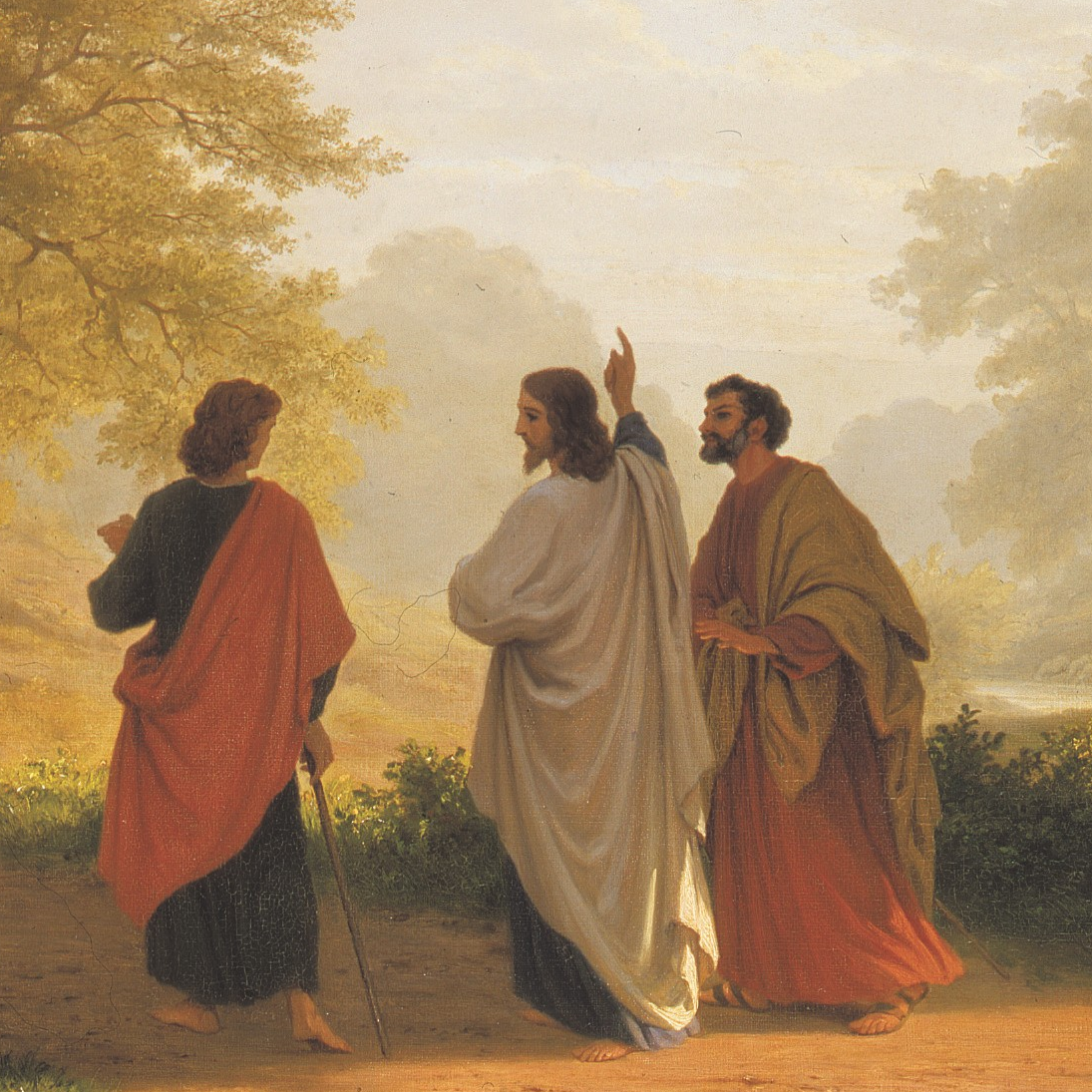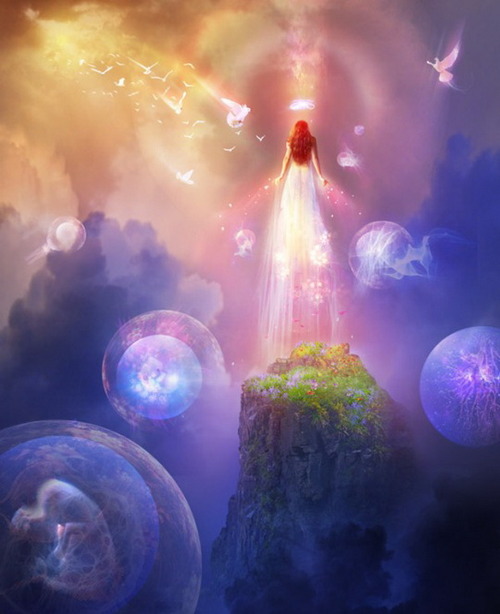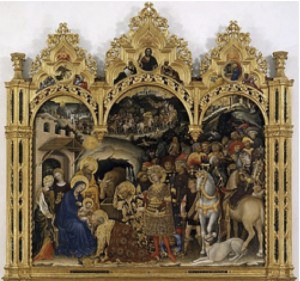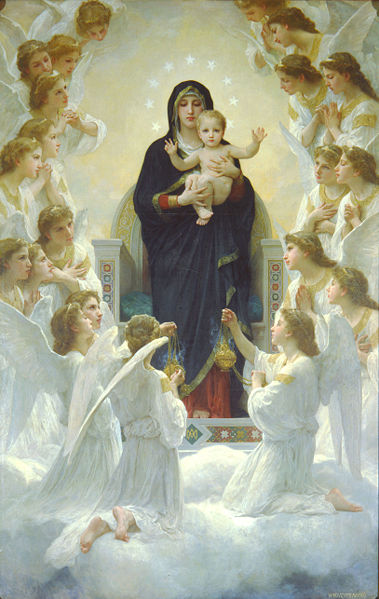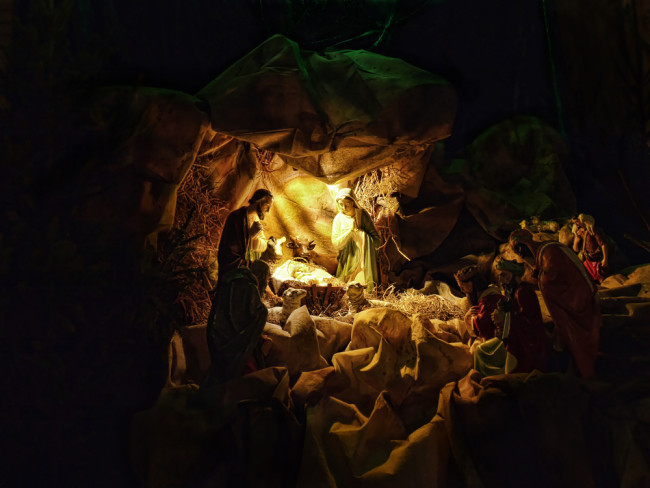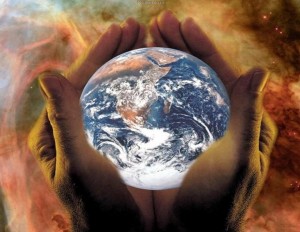Rereading this sermon from 2014, I am struck by the power of Jesus, Gandhi, and MLK’s saltiness to address our current need
It’s not about a messiah, it is about each one of us working together to overcome the things that separate us! – a sermon on the birthday of The Rev. Dr. Martin Luther King
Listen to Rev. Dawn Hutchings's Sermon Below Visit Rev. Dawn's Website Here
There is a very distinct anti-government thread that runs through the Torah, the Prophets, and the Writings of the Hebrew Bible. The story of how Ahab’s wife had a citizen killed so that the king could take his land represents the danger of how power corrupts an individual and destroys a society. As easy as it is to criticize the abuses of those in power, there is also a personal message in this to reflect on how much better we really are when given the power to abuse others.
May 31st is the day the Church commemorates “The Visitation” the story of Mary’s visit to Elizabeth as it is recorded in the Gospel According to Luke 1:39-56. Since reading Jane Schalberg’s “The Illegitimacy of Jesus”, I can’t help but wonder if Mary’s visited her cousin Elizabeth or escaped to her cousin Elizabeth seeking protection for the crime of being raped in a culture that all too often blamed the victim. Historians estimate that Mary may have been all of twelve years old when she became pregnant. There is ample evidence in the New Testament accounts of Mary’s story that suggest that she may indeed have been raped. So rather than sweep the possibility under the rug, on this the Feast of the Visitation, I’m reposting a sermon I preached a few years ago during Advent. I do so because women young and old continue to be raped and to this day, are forced to flee from the accusations and persecutions of cultures that continue to blame the victim. What follows is a written approximation of the sermon which in addition to Jane Schalberg is also indebted to John Shelby Spong’s “Born of a Woman” and “Jesus for the Non Religious” along with John Dominic Crossan and Marcus Borg’s “The First Christmas”.
Accepting that the world has a beginning and an end leads to a dismissive view of poverty, pollution, warfare, and social classes. While everyone certainly has a right to their personal beliefs about life after death, Muslims, Christians, and Jews must focus on the life that we know and to root our faith in what we can see in front of us. The early church was so confident that Jesus was coming back soon that they ignored many important matters of ethics. We cannot afford to make that mistake.
White privilege is so prevalent in American society that sometimes it is even difficult for minorities to be able to quantify and describe but it is as real as the air we breathe. Even Dr. Ben Carson, a black presidential candidate who grew up in poverty, said that the United States grew into the strongest economic global power in its first century because of a favorable economic environment. Evidently, he didn’t think that the uncompensated labor of African slaves was worthy of mention in that favorable environment?
Homecoming after a splendid summer respite. Readings Proverbs 1:20-23; Ephesians 4:11-13 and John 8:30-32. I am indebted to Peter Rollins for his excellent insights into the need for church to be a place where we consult our suffering.
Racism, the Imbalance of Power, and the Response of the Prophetic Voice
The literary world is in an uproar, learning that a prequel to Harper Lee's great American novel, "To Kill a Mockingbird," depicts the beloved Atticus Finch as a southern white racist. Is it possible that, like the fictional character, we can ever evolve and change?
When we go to war, we put the children of the poor into uniforms, arm them, and ship them abroad to kill the children of the poor in a distant land. Sure, there are tyrants and illegitimate, violent governments all over the world (many of whom are our closest allies) but as Howard Zinn pointed out, our modern wars always make things worse. We have to find other ways to solve international crises. Our nation should be smarter and our communities of faith should be more conscientious. Being strong and rich does not mean that we are a great nation. Being morally good and diplomatically intelligent…. That would make us great!
The nine deaths in the mass murder in the Mother Emanuel AME church will not automatically become redemptive suffering. Those deaths may be simply sad victims of senseless, racist, violence unless their deaths inspire transformation. It is up to us. The universe, on its own, is capricious and chaotic, entirely devoid of meaning UNLESS we bring meaning to it.
“My passion is guiding faith communities to more fully live out the mission of being witnesses to Christ’s peace with justice,” said Rev. Murphy in accepting the appointment to lead PCU. “I see the future of Christianity as modeling a spiritual social movement and see PCU’s role as supporting congregations that seek to be part of that modeling.”
a sermon for Easter 3A – Luke 24:13-35
We must treat the earth with the same kind of compassion that you would want from creation; the same kind of compassion you would want from the divine. As we travel this road to Emmaus, it becomes less and less important for us to believe in a certain way and vital that we behave with compassion. God is not dead. God is alive and well. God walks with us on the road. God is our companion on the road.
The mythical stories of Jesus’ transfiguration remind me of old-fashioned love songs. You know the kind of songs that were playing on the
The challenge for a progressive Christian who has moved beyond such notions as virgin births and gods disguised in human form come to save us from ourselves is to remember that it is as much a historical development, as it is a theological one. That is, the attribution of a “Christ” title accorded a very human Jesus constitutes the imaginations -- if not machinations -- of an early Church; consisting of very human, second-generation followers of a 1st century Galilean peasant sage and itinerant preacher. And who all but drowned out the authentic voice of the one who was once born and dwelt among humankind. Such an assertion is simply based on the fact the historical Jesus never self-identified as the “anointed one,” the Christ. As such, if one were to remove the Christ-title from the various birth narratives of those secondary traditions of this religious movement, what would remain of the “Christmas story” that has become as prevalently assumed, as it has been unexamined? If we took the Christ out of Christmas, what might remain of the voice of one who was born and dwelt among us? You can read more here.
Luke 1:26-38, a sermon for Advent 4B
Imagine what it must have been like for the early followers of the man Jesus of Nazareth; a peasant, rabbi, radical, and disturber of the peace, executed as a political threat to the Pax Romana. Jesus of Nazareth went to his death insisting that peace through victory was no peace at all. Jesus of Nazareth proclaimed the radical notion that peace, true peace can only be established and maintained through justice.Peace, true peace, is the result of everyone having enough. Distributive justice which ensures that the poor and the powerless, the marginalized and the despised have all they need to live in peace.It was such a radically dangerous notion that the powers that be could not let it live.
For Luke (1:26-38), the Divine enters the world of the poor, of political refugees, where there is manure on the ground and where people give birth in the back seat of a car with no working heater….because these things cannot be ignored or accepted as a permanent state of affairs.
The three major western religions, Judaism, Islam and Christianity, teach that time is linear but goes on for eternity. Many eastern religions tend to view time in repeating circular patterns. Both are guilty of undermining the message of environmental scientists who are telling us that we are simply running out of time. We have no reason to be certain that we will have an infinite number of chances to try again or that God will enter history and take us all away from a dying planet. The savior we are looking for is staring back at us from the bathroom mirror.
Mary, this enigmatic woman has remained in the shadows for centuries. All too often the epithet “virgin” has been applied to the young woman who fell pregnant so long ago. As her Advent appearance approaches, I this re-post this sermon which I preached a couple of years ago in which I asked some questions about Mary. At the time I was reading Jane Schalberg’s “The Illegitimacy of Jesus”, John Shelby Spong’s “Born of a Woman” and “Jesus for the Non Religious” along with John Dominic Crossan and Marcus Borg’s “The First Christmas” and this sermon is laced with their scholarship.
Matthew and Luke tell completely different (and contradictory) accounts of the birth of Jesus. Neither are meant to be taken literally. They were writing a theological message (sermon) to introduce their gospels. Where the two agree is that the Jesus they were going to describe was a messenger who would turn the world upside down, casting down the rich and powerful in favor of the weak and poor. There is our real Christmas story, a story of liberation and justice.
As we gather to celebrate Thanksgiving this week in the USA we should not forget that our “well governed” nation has reason to be ashamed of our tolerance of poverty.
Beyond the fearful and exploitative view of the earth seen in much of ancient scriptures, the human race has not only discovered an ability to dominate the earth, we have managed to beat it half to death. The modern church must embrace as a prophetic mission the defense of the environment in cooperation with scientists who are studying global climate change and the biological and botanical impacts of pollution.
This current series of sermons offers me the opportunity to examine and reflect upon my own faith – and I share those reflections with you, not to tell you what you should believe, but to challenge you to examine your own religious convictions.
We all belong. We are each one a part of the Temple of God. Paul wants the church at Corinth to recognize that they all belong to one another, and that it is foolish to divide and polarize around certain leaders. Paul argues that there is no place in the church for petty jealousies and pride.
When Paul talks about the wisdom of the world he is not talking about Greek philosophical wisdom. The wisdom of the world that Paul has particularly in mind is the wisdom that crucified Jesus. The wisdom of the world Paul is referring to is the kind of wisdom expressed in domination systems. In our context it would be powerful governments and corporations who wield enormous power and wealth to shape society in view of their own self-interests.
written by Brian Brown
Progressive Christianity is for me somewhat like taking that leap of faith to what writer Hal Taussig calls “A new spiritual home” For some of us, at least, it feels like that. It involves jumping a credibility gap that has opened up for the Christian Church; a credibility gap that goes back a long way. It’s there in the Bible readings: the difference between the behaviour of the Israelites in the Promised Land and the behaviour that was required of them according to the teaching of God and the ways in which they had been nurtured and led. It’s also there in the teachings of Jesus.
I’d like to invite you into a conversation we’ve been having at the First Presbyterian Church of San Rafael these last weeks of Lent, a conversation about evolution and faith. We’re not talking about a six day creation, with God resting on the seventh. I really, really hope that argument’s over and done with. No, we’re talking about evolution as the way in which everything unfolds in all of creation. We are looking at a creation that evolves and opens towards unity, or shalom, in the presence of God.
A supersessionist view of the Christian covenant might have made some little sense in a mythic worldview, but never made any moral sense. The time has long since come for Christians to drop such an arrogant claim. It has contributed to extraordinary suffering and eroded any moral authority we might think we have. In that sense, it never made any just sense of the work of God we’ve come to know in Jesus Christ.
What does the Doctrine of the Trinity look like if we reject the idea that it describes a permanent unchanging God? It describes a God as close as your breath, a God whose creative power continues to create, a God who we can see incarnate all around us.

